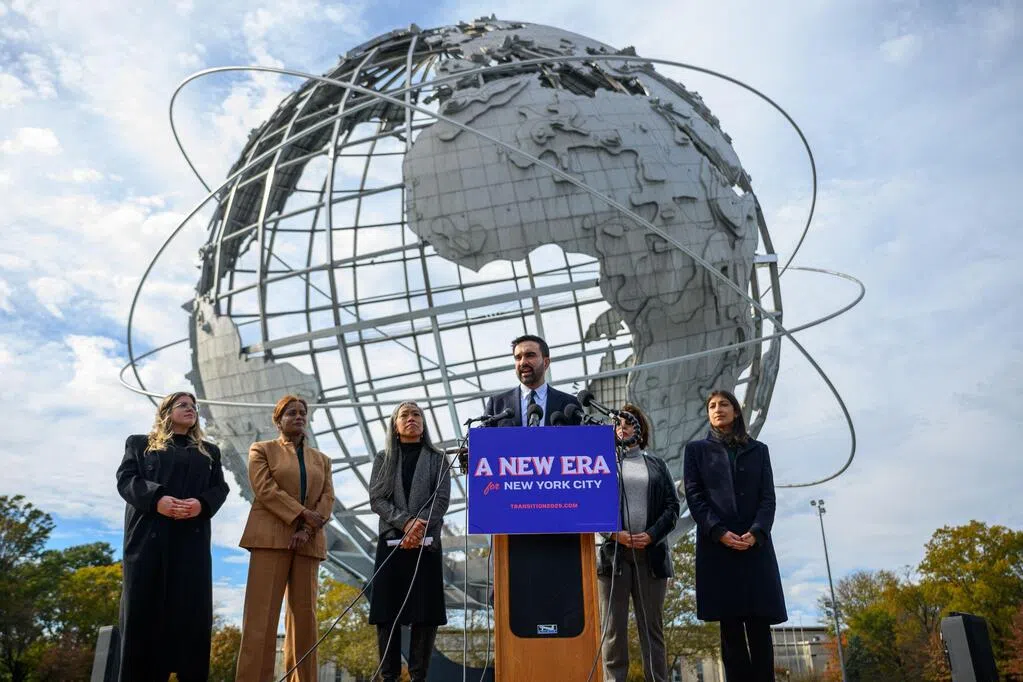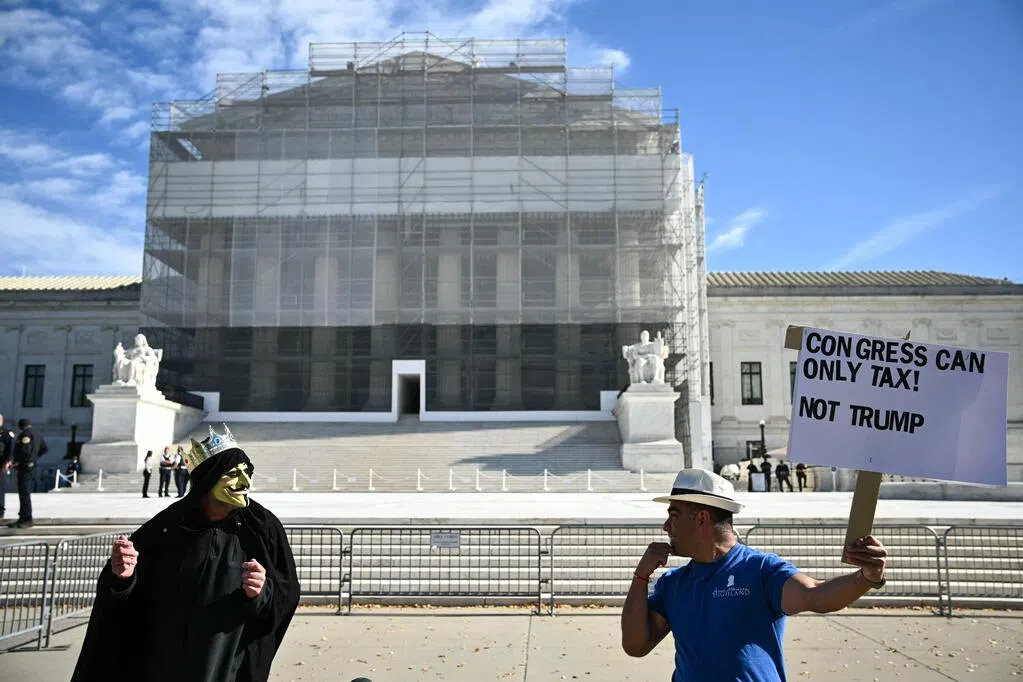(Washington, D.C.) U.S. President Donald Trump acknowledged that his tariffs may have forced American consumers to pay higher prices, but he insisted that the policy has ultimately benefited Americans. He also pointed out that a ruling by the U.S. Supreme Court that the tariffs are illegal would be a major setback for the United States.
On Thursday (November 6), when asked by reporters at the White House whether he agreed that Americans were actually paying for the tariffs, Trump replied, "I disagree. I think they may have paid some, but if you look at the overall impact of the tariff policy, the Americans have benefited greatly."
This latest statement differs from Trump's repeated assertions over the past few months that the tariffs were being paid by exporters in other countries.
Trump has consistently maintained that tariffs are a means for him to resolve conflicts with other countries and to secure economic fairness for the United States. Regarding the possibility that the Supreme Court might ultimately rule his large-scale reciprocal tariff policy illegal, he said, "I think that would be a major blow to our country, and we have to develop a second strategy."
Trump warned that if tariffs are not used as a threat, the hundreds of billions of dollars in investment plans pledged by Japan, South Korea, and the European Union would be at risk and could be lost.
Further Reading


In response to Supreme Court hearing, the White House changed its tune, claiming tariffs are unrelated to money. The U.S. Supreme Court on Wednesday (May 5) debated the legality of President Trump's invocation of the International Emergency Economic Powers Act (IEEPA) to impose large-scale retaliatory tariffs on global trading partners. Six of the nine justices, including three conservative justices, questioned the legality of his actions, arguing they violated Congress's power.
For months, the Trump administration repeatedly claimed that tariffs were a key strategy to "make America rich again," bringing in huge amounts of revenue to help pay off the national debt, offset tax cuts, support farmers, and even provide cash payments to Americans.
After announcing the retaliatory tariffs in April, Trump posted on social media: "When the tariffs are in effect, many people will have significantly lower income taxes, or even no taxes at all. America will be rich!"
However, at Wednesday's Supreme Court hearing, Deputy Attorney General Saul, representing the Trump administration, claimed that tariff policy was completely unrelated to money, defining tariffs as the president's power to regulate foreign businesses, not as a form of taxation.
Saul said, "These are regulatory tariffs, not tariffs designed to increase fiscal revenue. Increased revenue is just a side effect."
Following the hearing, Treasury Secretary Bessant emphasized on social media that evening that the focus of the tariff strategy was not money. "The president's agenda aims to bring manufacturing home, balance the crisis-level trade deficit, and address trade barriers erected against us by global trading partners."
He said, "Tariff revenue is merely a side effect of achieving these urgent goals, not the fundamental reason for implementing tariffs."
This shift is strikingly different from Bessant's earlier statements. In August, at a cabinet meeting at the White House, he predicted that tariff revenue could reach $500 billion (approximately S$652 billion) annually, or even "a trillion dollars," and posted charts on social media claiming that the surge in tariff revenue was a "stable source of federal revenue growth."
However, as the Supreme Court hearing approached, Bessant's rhetoric actually changed. In October, at a Treasury Department press conference, he described tariffs as a "surcharge," similar to the fee paid by a driver applying for a driver's license.
Scott Lincicome, a scholar at the Cato Institute, a U.S. think tank, said that the Trump administration's recent focus on reaching agreements with trade partners and its cessation of mentioning tariffs clearly indicates a public shift in its tariff policy argument.
Experts point out that the White House's October decision to withhold 100% tariffs on Chinese goods in exchange for China intensifying its efforts to curb fentanyl smuggling also strengthens the argument that tariffs are a national security strategic tool, not merely a form of taxation.



